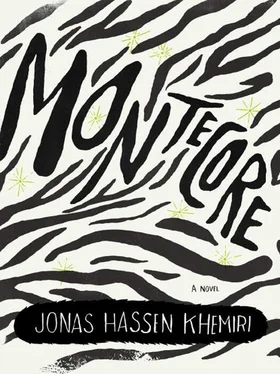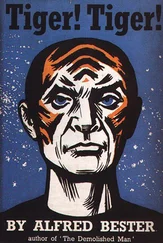Dads sit alone in the living room and make comments about the wardrobe quality of the extras on Falcon Crest reruns.
Dads sit as though bewitched in front of the looped ads for the Abdomenizer, a totally new kind of exercise implement that sculpts your stomach muscles in three different ways at once, you can store it under your bed and work out in front of the TV and look at all these people, sitting here tanning-salon brown and face-lifted, who have succeeded in dieting themselves to new lives in just ten minutes a day.
Little brothers have started school and they’re losing front teeth and learning all the letters of the alphabet perfectly and sometimes you think that right now little brothers are the same age you were when the Dynamic Duo started. And in some way it’s impossible to imagine that you, who were so big then, practically all grown up, were actually as small as little brothers are now, as gap-toothed, as boyishly stick-armed. At the same time, little brothers start to ask you about Dads. They wonder why Dads have become so strange and why Dads think the girl who hosts the nature program on Channel 1 will answer when they comment on hyenas’ digestion and get irritated by the obviously unprofessional cameraman. Little brothers look sometimes worriedly but mostly fondly at Dads, and when they need help with homework they come to you instead. Because Dads say that Magdalena was Jesus’ woman, and Jesus was about like history’s first photographer in a metaphorical sense, and the disciples were like Jesus’ invisible henchmen, they were like photographer’s assistants who got Jesus down from the cross and moved that stone, you know, and actually you could say that most things in life can be explained with photographers. And assistants. But despite the changes in Dads and despite Dads’ stubborn refusal to go to the doctor, there is not a single time when Dads hit Moms. Neither do Dads ever make the mistake of touching a hair on little brothers’ heads. However, there are times when big brothers must be shown the right way and then it’s often the best of moods, with Dads who are humming along to some ad jingle in front of the TV and then suddenly change moods before anyone has time to react and the reptilian-quick surprise attack is most often with words and seldom with blows, an attack that makes clear that no matter what you do, you will always be a disgrace to the family because you spend time with niggers, disgusting abids, sweat-stinking monkeys when you really should be spending time with Östermalm Swedes who play tennis and piano. But no, you have to play basketball and ruin your life with people from the outskirts, disgusting fat Indians and monkeys, and Dads spit out the words and you just take it without striking back because you know that dads will be quiet anytime now, because the ads will be over and the episode of Glamour will come back on and you know that it’s not really Dads saying those stinging words because Dads are gone, Dads have been stolen, and everything is Sweden’s fault.
Four weeks later, Dads disappear quite physically. Moms go from rage to worry to fury to teary conversations with friends, to rage back to worry and then just a heartbreaking sadness that pales cheeks and makes Moms start to take pills that help with sleeping and sometimes freeze her movements so that it can take fifteen minutes to throw a garbage bag down the garbage chute. The studio is burned up, Dads have packed their worn suitcase and left family responsibility behind.
Do you believe that your father’s journey aimed for luxurious recreation or visits to touristettes’ backsides? No sirree, Bob! This journey was obligatory for your father’s survival. The modification of Sweden frightened him to nightly tears, he had vibrations from the past, and every day before the attack he saw his own death. After the fire it was like he had been right. He wanted to be there for you, but … could not. Can you forgive him?
I remember clearly that morning of dawn in 1992 when I met your father’s form again. I had spent the night in the area where I would open my hotel in the future. Now the work had been ceased for several months with financial scarcity as a motive. With the ambition of a guard dog I made sure that no nocturnal criminal kidnapped my building materials. I slept in a preliminary storage building and every snap noise roused my alertness. Suddenly in the dawn: the sound of sneaking feet. Aha, a masonry criminal, thought my brain, attracted a club to my hands, and crept my steps out to the courtyard. A bearded shadow wandered around near the street wall and my premier thought was that it was one of Tabarka’s homeless beggars. I raised the club to the sky and roared “HALT!”
In the next second I realized my faux pas. “Are you going to attack me with that?” smiled your father and put down his suitcase on the gravel. “Wherever I travel, drama seems to escort me.”
I was very satisfied to see your father again. Even if he took me by surprise because of his somewhat risen stomach and his bushy beard. Abbas said that he had planned a rather long break in Tabarka, and of course I invited him to my permanent home.
In coming weeks we spent frequent hours in the nostalgia of friendship. Your father detailed how his studio had now grown to a nationally known atelier in Swedish photography circles. He told of his staff of assistants, of his close friendship with many international artistic photographers, and he praised the Swedish journals’ interest in his photo sessions with celebrities like Ingmar Bergman, Kurt Olsson, and Eddie Murphy.
“Wow!” I impressed. “And why, then, can you not return my economy?”
“A vital thing in the dawn of a business is to reinvest the profits. Your hotel must also follow this pattern.”
“How have you found this sudden success?”
Your father stroked his wild beard and explained proudly:
“I have followed that method which my idols taught me. I have created a photographic stage name and trained my tongue to perfect control of the native language.”
“So … which name is your name now?”
Here your father changed to the melody of English:
“Krister Holmström Abbas Khemiri is my name, photography is my game.”
“Krister Holmström …?”
Your father nodded his head.
“Wow, Krister is also a name of strong Christian tradition, right?” I impressed. Your father did not consider this a compliment but made his forehead into a wrinkled paper.
“What is your tongue suggesting? Why shouldn’t I get to formulate my own name? Why shouldn’t Capa’s method be mine?”
I silenced my mouth in order to not accidentally grow your father’s bizarre irritation.
In the evenings we wandered Tabarka’s quays, where the growing tourist commerce had begun to offer camel tours in five-minute phases including the documentation of Polaroid photographs. We passed the old Hôtel Majestique, the exterior of which seemed weak and worn while the new, big hotels stood like long white rows of teeth down by the ocean’s edge. We passed stands that sold stuffed camels, T-shirts with Coca-Cola prints, decorative hookahs, and over-colored postcards. Your father incessantly searched his eyes at all the encountered people and I finally forced the question:
“Who is your gaze seeking, really?”
“Me? No one particular … I am just noticing all the modifications. The world is certainly bizarre. Here in Tabarka they sell copied Michael Jackson records and Dirty Dancing T-shirts. And in Stockholm my son reads the Koran, spends time with niggers, and refuses to eat pork.”
“What?”
“Nothing,” regretted your father, and refused to discuss the subject further.
Back in Stockholm there are Momswith three sons who must be raised and a big brother who becomes an adult that spring. For real. You take on the responsibility of man of the house. You explain to little brothers that now it’s you who are the Dynamic Trio because Dads are not to be depended on and in our family you have to be responsible early on. You go to Skärholmen with little brothers to shop, you teach little brothers what bread to buy where and show how to pay honorably for absolutely everything but the garlic, which you transport home in your coat pocket in true family tradition. On the way home you explain to little brothers: There are special rules for us Swedes who don’t look like regular ugly blond Swedes, for us it’s No points for second place, no points for place number two, we must always be number one, do you understand? Little brothers nod exactly in time, and then you continue toward home to make your invented oven pancake with baking chocolate hidden in the edges. You pick up sick brothers early from after-school care and return videos too late at Video Nord and even dare to go down into the laundry room by yourself, even though you sometimes see ghost shadows and still hear voices before you fall asleep. But soon the voices change, they go from scary phantom voices to subject matter for the stories you’ve begun to write, you lie on your side in the bed and hear voices tell stories and for your whole life the voices have scared you and kept you awake and woken you standing in the hall, but only now do you realize that the voices can be useful. Imagining stories keeps your imagination in check and as an adult you don’t have time to lose focus, adult sons have to help Moms into the ER when the stress stomach makes Moms collapse forward onto the kitchen floor and adult sons are always there for support when Moms show weakness, whispering strengthening words and promising that Dads will come back soon and he hasn’t forgotten his family at all. Because he hasn’t, right? But why doesn’t he call? Why doesn’t he write? Moms’ questions are childishly difficult to answer and on her temple Moms have a scratch from her kitchen-floor fall and Moms close her eyes when you dab the wound and a little fluff gets stuck at the edge and somewhere inside you a terrible rage is growing about Dads’ talent for coming and going however he wants. Just when Dads are needed the most.
Читать дальше










